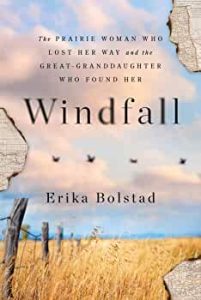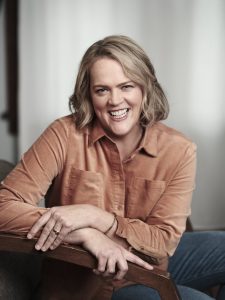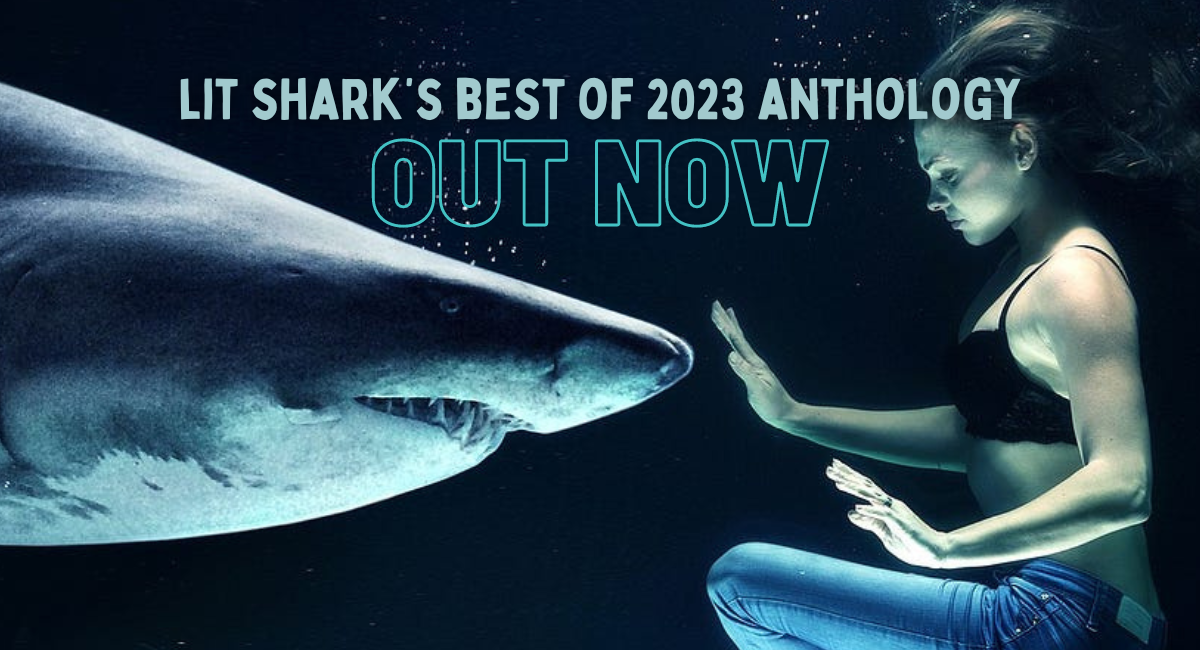Windfall tells the story of how journalist and documentary filmmaker, Erika Bolstad uncovers a hidden family history, buried deep underground in far-off North Dakota. Thanks to the royalties (known as “mineral rights”) that belong to her great-grandmother, this homestead holds the promise that if an oil company drills, her family could become rich. In this memoir, Erika explores grief, hope, a determination to understand her family’s role in the oil industry, and a search for a full picture of her great-grandmother’s life.
Three months after Erika and her family learn of their inheritance, her mother passes away. She tasks herself with writing an obituary that also serves as a way for her to process her grief. As a writer and as a daughter, I cannot imagine needing to sum up an entire life (much less my mother’s) in a page or less.
When reflecting on her mother, Erika says, “I read that fetal DNA lingers in a woman’s bloodstream throughout her lifetime. Mothers always carry something of their children within their bodies. This, I finally understood, was why our grief for our mothers feels so raw, so physical. We hurt because those little pieces of our own DNA, the ones inside our mothers, died too. Part of us is also gone forever, and our bodies know it.”
I feel as though this longing is part of what pushes Erika to keep digging for the truth about her great-grandmother, Anna Josephine Sletvold. She wants to find that connection, not just let it die.
As a journalist who has reported on climate change and environmental issues throughout her career, Erika wanted to explore the role the oil industry played in North Dakota, while at the same time, learn more about promises offered by oil companies, this whisper of, “You could be rich!”
Traveling from liberal Portland, Oregon, to ultra-conservative North Dakota was a culture clash for Erica. Requests to tour oil companies as a journalist are met with a cold reception and a lack of transparency. Residents refuse to acknowledge climate change but are willing to talk about issues like flooding and severe weather. Venturing to the local Walmart feels like an unsafe experience for her as a woman, under the eyes of leering men.

Windfall by Erika Bolstad
As Erika digs through dusty record halls, she learns how much North Dakotans rely on this industry for their livelihood. In the early 1900s, buying land to homestead and leasing it to oil companies gave single women, men, and families financial independence that was hard to come by. Her own great-grandmother purchased land as a single woman in the hopes of striking it rich. While trying to uncover this story, Erika also acknowledges the effects the fossil fuels industry has on climate change, including playing politics to cement their position even as public awareness grows. She notes how former President Obama announced his plan to fight climate change while simultaneously creating more opportunities for fracking. Erika becomes so invested in her investigation that she winds up leaving her full-time newspaper job to focus on Anna’s story.
Erika shows a harsh, truthful picture of what the oil industry has come to represent in this Midwest state and how the sudden lack of this resource can completely devastate a town.
The fact that she never shies away from the difficult parts of the story is perhaps what I appreciated most. As Erika digs deeper, she learns that Anna’s mother was sent to an insane asylum when Anna was just eight years old. In turn, when Anna becomes a mother, she also winds up being sent to an insane asylum. In Anna’s case, which was true for many mothers at the time, it was likely due to postpartum depression. Many women were said to have “lost their minds on the prairie” and were sent away “to Jamestown,” as it was commonly referred, which simply meant being accompanied by railroad to the state asylum.
Anna never sees the money from her mineral rights. Like her own mother, Anna loses all the autonomy and independence she was seeking. Erika imagines grief and sadness that Anna must have felt. It speaks to the reader of the truth for women in the past, who were hidden away, rather than offered the tools they needed to survive.
Women were far from the only marginalized community affected by the oil boom. Many Native American tribes were displaced by settlers, arriving to claim homesteads. Thanks to disease, broken treaties, and warfare, Native Americans were excluded from the oil boom. They were not able to claim land, but worse, tribes like the Assiniboine starved to death while their bison were hunted to extinction.
As she interviews present-day oil tycoons, residents, and workers, Erika reveals a full, complicated story of what the industry means in this part of the United States. Today, oil in the region, yet again, relies on Native American land. At the time of her writing, oil wells on the local tribe’s reservation were responsible for one-third of the state’s output. The tribal nation has received over $1 billion in revenue from the boom, but that is only part of the picture. At the same time, reliance on oil has exacerbated economic disparities and social problems, creating a crime wave.
Braided into her research is Erika’s struggle with infertility. She longs to be a mother, so much so that she travels to perch on a “baby-making rock” in the hopes it will help. This struggle feels tied to Anna’s inability to stay a mother in some ways, linking the present and past with another thread.
As someone who has never enjoyed historical memoirs, I found the sections of that book that dive extensively into the background on the oil industry slow going, although I knew it was necessary to give the story context. While I found it engaging that Erika ties in her own story of infertility while exploring Anna’s, it also felt as though her memoir meandered and winded in a way that didn’t feel cohesive. Her own story of trying to become a mother could have been a separate section, as a tangent to Anna’s story.
At times, Erika finds herself romanticizing Anna’s life and has to pull herself back to reality. I empathize with this, as I am sure others will. Too often, we want our past and our ancestors’ stories to have depth. But as Erika says, “As Anna’s descendant and as a storyteller, I ached for her life to have some meaning… like so many myths of the West, I know it was an exaggerated account of what happened, weighed down by my own wishful thinking and my own attachment to the storylines of capitalism. Yet the meaning provided by capitalism was what I – and most Americans – knew best.” This stark look at the American dream is unflinching and tragic, and took courage to tell. Erika helps reframe our understanding of the past and present role of fossil fuels without overlooking the important nuances.

ERIKA BOLSTAD is a journalist and filmmaker in Portland, Oregon, and the author of Windfall. She spent a decade in Washington, DC, covering politics and environmental issues for Climatewire and the McClatchy Washington Bureau. In 2008, she was a Pulitzer finalist for her work at the Idaho Statesman. She was also a staff writer for the Miami Herald, where she covered Hurricane Katrina and other national stories. Her work has appeared in The Washington Post, Scientific American, and many other publications.






0 Comments
Trackbacks/Pingbacks